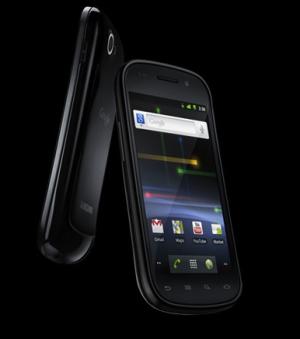Citi and MasterCard See Google as Catalyst for NFC Rollouts

While Citigroup and MasterCard Worldwide are not confirming their planned participation with Google’s expected NFC mobile wallet, a representative of the bank has told NFC Times that a pairing with Google could make sense for Citi.
And a MasterCard representative has called Google’s embrace of NFC technology a "catalytic event" for the market and prospects for NFC rollouts.
They made the comments last week, before the most recent report, early Monday, by the Wall Street Journal that Citi and MasterCard would "team up" with Google to use Android NFC phones to enable consumers to make mobile payments and also receive targeted mobile ads and offers from merchants, via Google. NFC Times reported the interest by Citi and MasterCard to put a Citi-issued PayPass application in Google’s planned NFC mobile wallet in January and earlier this month.
"If it’s an open wallet, we could participate like everyone else would; there is no reason why not," said Dickson Chu, managing director for global enterprise payments, when asked by NFC Times about Google’s wallet plans. He had appeared on a panel discussing prospects for the rollout of mobile wallets last week at the International CTIA Wireless trade show.
"If it adds value, we should be part of it," he said on the panel. "We’re not an advertising company. Our consumers are like everyone else. They want a deal. If they (Google) are offering something that can drive value to our customers using our payment instruments, it makes sense."
Citi could launch an NFC-enabled offer by the second half of this year in the United States, and perhaps elsewhere, NFC Times has learned.
Google has also been talking to big merchants, including Wal-Mart, along with such technology vendors as point-of-sale terminal vendor VeriFone, reader maker Vivotech and acquirer and processor First Data, as it attempts to sell merchants on customized, location-based mobile advertising and promotions, NFC Times has learned.
Google reportedly plans to test NFC-enabled mobile commerce in up to five cities this year, including New York and San Francisco. The Internet search giant hopes to capitalize on what its outgoing CEO Eric Schmidt has called a mega-scale opportunity that NFC combined with Android smartphones could offer.
Schmidt first publicly endorsed NFC technology in November and a month later the company announced its Android operating system would support NFC, along with its own Nexus S smartphone.
James Anderson, MasterCard’s head of mobile product development, called the Google endorsement the most important event in the past 12 months in terms of pushing the rollout of mobile wallets.
Anderson, who like Chu spoke on the CTIA panel on mobile wallets, said Google’s announcement was significant since it came from a major Internet brand driving mobile innovation, including payments.
"(Google said), 'we believe in the technology; we see the value proposition for the consumer and ecosystem, and we’re willing to actually do real work to make it happen,' " said Anderson.
While MasterCard and some other payments players have been backing NFC for the past four to five years, Google’s support for the technology means appealing handsets will become available, along with a "very active and innovative ecosystem."
Chu agreed, telling the audience during the panel discussion that Google, as an outsider in the payments business, could help create a business model for all the prospective m-commerce players, including banks.
"It’s the value delivered to consumers. It’s the mobility. It’s the instant access to deals," said Chu, a former vice president of global product and experience for eBay’s PayPal unit. "At the end of the day, these devices really do two things, right? You use it to waste time or you use it to save time. In either case, there’s the entertainment factor and efficiency factor. Merchants care about that and consumers care about that. They want to get a good deal, then on top of that, if they can consummate that (with payment) in a really easy and secure fashion, that will propel consumer adoption."
The Google wallet and mobile commerce services could compete–or perhaps co-exist–with the Isis wallets planned by major U.S. mobile operators that have formed a joint venture to roll out NFC with payment and other applications.
PayPal is also planning a big push from its base in Web payments to the physical point of sale that will likely see a contactless PayPal application one day loaded onto NFC phones. PayPal’s mobile-payment strategy remains unclear, however.
As for Citi, it could also promote NFC alternatives or bridge technologies, such as microSD cards and contactless stickers, in addition to applications on NFC phones. Other major U.S. banks are trialing microSDs and Citi has worked with the cards internally.
Chu said Citi has seen impressive results from a passive contactless sticker it introduced about nine months ago, despite almost no marketing by the bank.
"For every one of these accounts, we’ve seen material lift in their spend," he said, later estimating to NFC Times that consumers, who ordered the stickers from the Citi Web site or by phone, increased spending on average by a percentage in the low double digits compared with the same consumers’ purchasing behavior using conventional Citi credit cards.
Citi will probably continue with bridge technologies even if it goes ahead with a launch with Google.
"Like all two-sided markets, it’s going to take a while for a new technology to take hold, for acceptance to be ubiquitous, for enough handsets to have that," said Chu, speaking in general about NFC during the CTIA panel. But he added about the Google NFC endorsement: "It’s a huge milestone."












